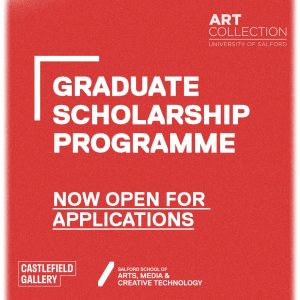
2025 Graduate Scholarship Programme: Open for Applications
The Graduate Scholarship Programme is now open to applications to 2025 Graduates from the School of Art, Media and Creative Technology! Find out how to apply here!

The Graduate Scholarship Programme is now open to applications to 2025 Graduates from the School of Art, Media and Creative Technology! Find out how to apply here!
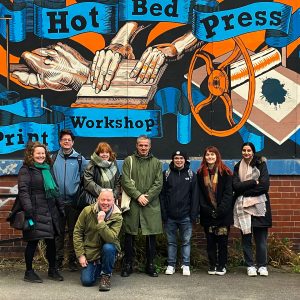
The University of Salford Art Collection, Paradise Works, Islington MIll, Hot Bed Press, and our associates at Castlefield Gallery got together with our current Graduate Scholars to have a look at what they have been up to in their new studios. Read more here
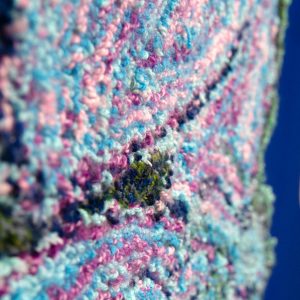
Alena Ruth Donely exhibits at our new exhibitions CATALYST with their piece 'Wavy Lady', 2020. Find out more here!
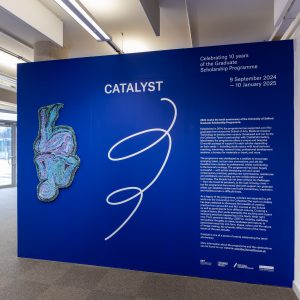
Join us on the 9th of October 2024 to celebrate our newest exhibition CATALYST - featuring 16 artists from across the North West. Eventbrite link here!
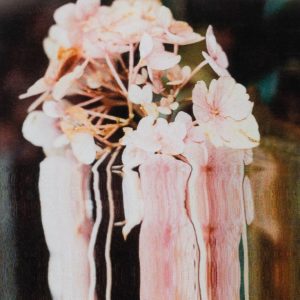
Katie Aird's 'Entropy' is current on display at CATALYST. Learn more here!
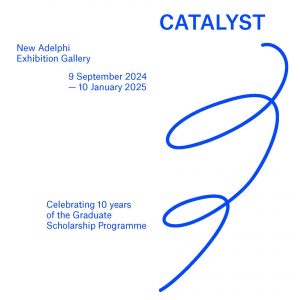
2024 marks the 10th year of the Graduate Scholarship Programme, and to celebrate we have launched a new exhibition in the New Adelphi Exhibition Gallery – featuring 16 of the 50 artists who have taken part. Find out more about the Programme here, the 10 year celebrations here, and about the exhibition and artists below. […]
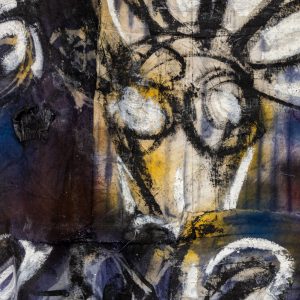
Suraj Adekola exhibits at our new exhibitions CATALYST with his piece 'We Should All Be Blacks 6', 2022. Find out more here!
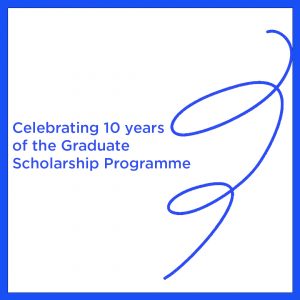
2024 marks the 10th year of the Graduate Scholarship Programme. To coincide with this we're having various celebrator events in different locations - up and coming is our newest exhibition CATALYST - Celebrating 10 years of the Graduate Scholarship Programme.

Over the last decade, the University of Salford Art Collection has been working in partnership with Castlefield Gallery to deliver a unique and ambitious programme to support outstanding graduates from the Salford School of Arts, Media and Creative Technology.Many of the Salford Scholars have graduated from Fine Art and Photography programmes, though we have also […]
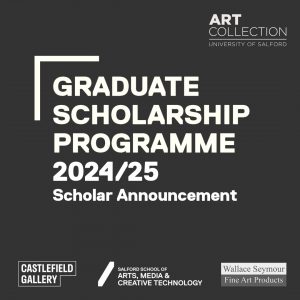
The University of Salford Art Collection, in partnership with Castlefield Gallery and Wallace & Seymour, are proud to present our 2024 cohort for the Graduate Scholarship Programme!